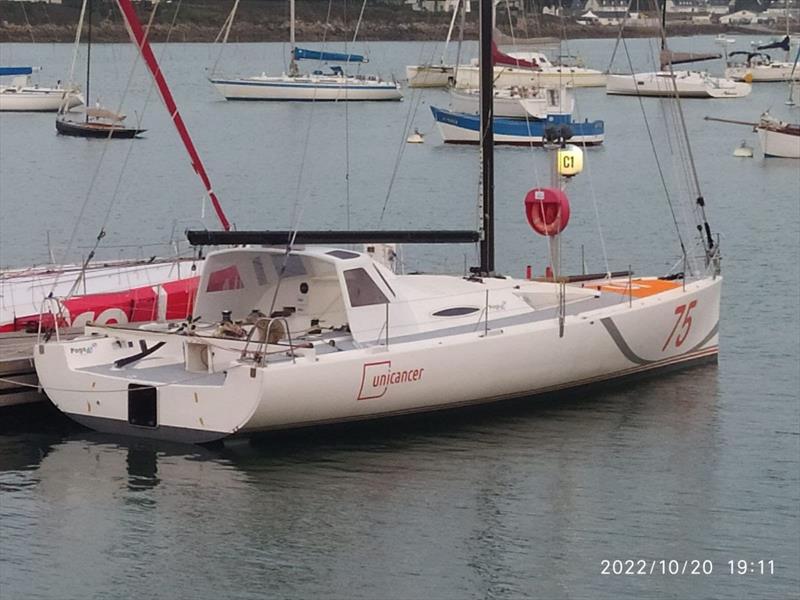
Global Solo Challenge sailor François Gouin's Open40 Kawan III and his “dream team”
by Margherita Pelaschier 20 Jun 2023 21:00 AEST

Kawan III - Pogo 40s Class40 © François Gouin
François Gouin is gearing up to participate in the Global Solo Challenge to realize a lifelong dream and to promote, during his circumnavigation, both the values tied to his profession as a surgeon for Unicancer, and those of a solo sailor.
Kawan III, the Pogo 40S chosen for this adventure, also carries the ideals and hopes that the French skipper shares with a large team of colleagues, friends, and his family.
"When the stars aligned and I could consider my participation in the Global Solo Challenge, I also decided on the type of boat I wanted to sail around the world with. I chose a first-generation Class40. The Class40s are already designed for long oceanic voyages. The size of the boat is manageable from both a navigation and budget perspective. The first-generation Class40s are characterized by a construction that focuses more on robustness and reliability than on performance, unlike the latest models, which are technically pushed to the extreme. Additionally, Kawan III has a slim bow to cut through the waves, while today's Class40s have a broad, scow bow."
François Gouin found his ideal boat in Italy, in Pisa: a Pogo 40S, designed by Finot-Conq and built by the Structure shipyard in Concarneau in 2008. François quickly understood that it was a structurally "sound" boat and interesting because it had not sailed much in the past and had not participated in oceanic races.
Kawan III takes us on a journey into the heart of the naval architecture history of Brittany, a region that has been the birthplace of many innovative thinkers that dedicated their profession to offshore racing. Two naval designers stand out: Finot and Conq.
Jean-Marie Finot, born in 1941, has always wanted to become a yacht designer since he was a child. After discovering sailing at courses held in Glénans, he designed his first boat in 1967, the 'Écume de Mer', which had great success, winning the title of "Boat of the Year" in 1975. In 1973, he started his business as a naval architect, designing boats for various shipyards and races. In 1988, he joined Pascal Conq and together they dedicated themselves to designing prototypes like Mini 6.50s and the Figaro Bénéteau for oceanic races. The Finot-Conq design studio has also designed eighteen carbon IMOCAs. Finot distinguished himself by his design of "wide" boats, characterized by power, stability, and ease of handling.
Pascal Conq, born in 1962, spent his childhood in Roscoff, fully immersed in the world of the sea, from oceanographic research, fishing, sailing, to shipbuilding. An avid racing enthusiast, at the age of twenty in 1982, he designed and built the first canting keel on a racing boat. After graduating in architecture, in 1988 he became a partner of Jean-Marie Finot, with whom he has collaborated for over 25 years. In his various racing boat projects, including Mini 6.50s and 60-foot IMOCAs, Pascal Conq designed the bulbs, rudders, and sails of all the group's boats. In 2000, he moved to Vannes and directed the Finot-Conq design team from the end of 2008 to mid-2020.
Their common philosophy was to create boats that were robust, fast, and easy to build. Their work and the quality of their boats have been appreciated by colleagues and many sailors who have chosen and continue to choose them.
Gouin's boat complies with the Class40 box rules, equipped with a carbon mast, an aluminum boom. "For the round-the-world journey, we've equipped the boat with a set of new sails made by X Voiles sailmakers in La Baule. The mainsail and the foresails will be in DCX, a high-strength polyester laminate, particularly suitable for its durability. All the halyards are new, made of Dyneema."
Continue reading the full article here...